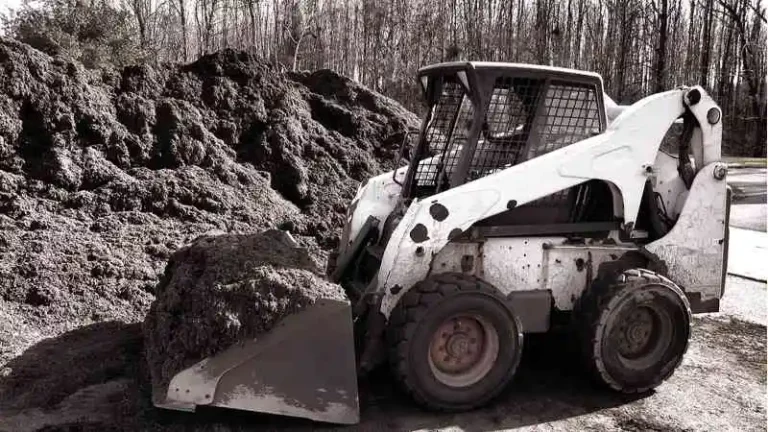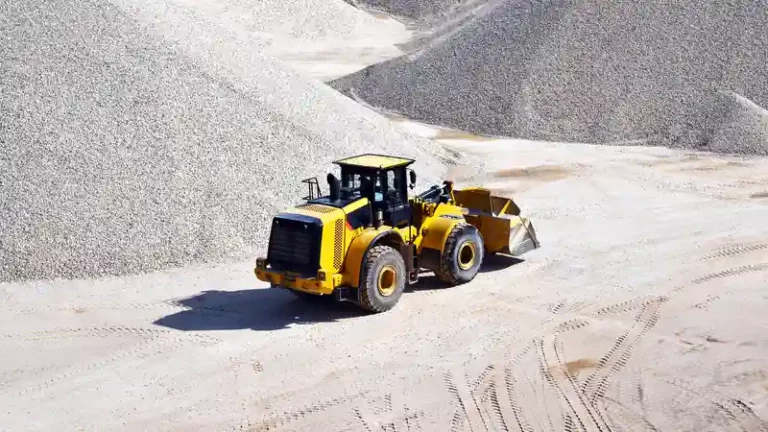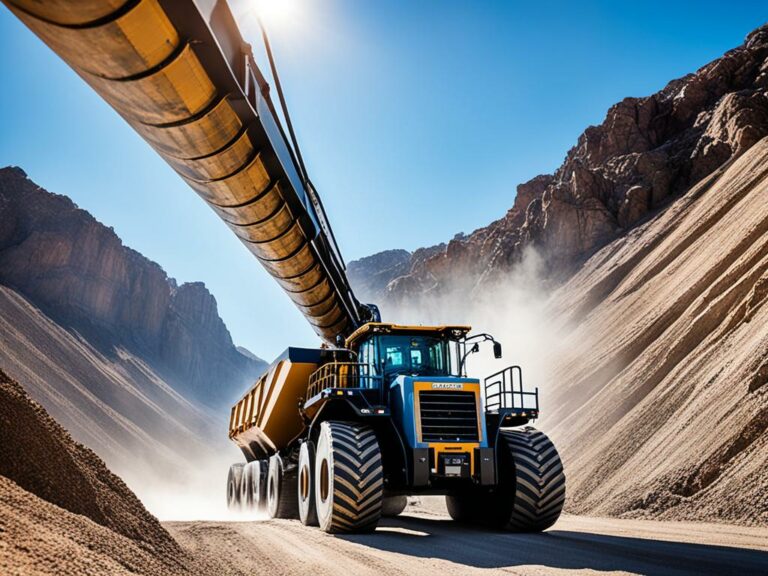If you’ve ever seen a construction site or a landscaping project, you might have encountered a skip loader. This heavy-duty vehicle is commonly used for loading and transporting materials like gravel, dirt, and debris. But have you ever wondered why it’s called a skip loader?
The origin of the name “skip loader” is not entirely clear, but it may have to do with the way the vehicle skips over obstacles or the skip container it lifts and moves around.
In this article, we will explore the different theories and try to uncover the true meaning behind the name “skip loader.”
Introduction to Skip Loaders
Skip loaders are versatile and powerful heavy-duty vehicles commonly used in construction, landscaping, and waste management projects. They are designed to handle and transport large quantities of materials such as gravel, dirt, sand, and debris quickly and efficiently. Skip loaders are highly maneuverable and can operate in tight spaces, making them ideal for use in urban areas with premium space.
The skip loader gets its name from the skip container it lifts and moves around. The skip container is a specialized container designed to hold and transport materials. It is typically made of metal and has an open top, allowing for easy loading and unloading of materials. The skip container is attached to the skip loader with hydraulic arms and can be raised, lowered, and tipped to unload its contents. The skip loader is also equipped with a bucket on the front, which can be used to scoop up materials and load them into the skip container.
Theories About the Origin of the Name
The origin of the name “skip loader” is not entirely clear, and there are a few theories about where it came from. One theory suggests that the name might have to do with the way the vehicle skips over obstacles or skips the need for manual labor. Another theory speculates that the name might have originated from the skip container that the loader lifts and moves around. Here are more details on each of these theories:
- Skipping over obstacles theory: This theory suggests that the skip loader’s name comes from its ability to navigate rough terrain and obstacles without getting stuck. The vehicle’s power and maneuverability make it possible to skip over obstacles. Hence the name “skip loader.”
- Skipping manual labor theory: This theory suggests that the skip loader’s name comes from the way it eliminates the need for manual labor. Before skip loaders were invented, materials had to be loaded and transported by hand, which was labor-intensive and time-consuming. With the advent of skip loaders, materials could be moved quickly and efficiently without manual labor.
- Skip container theory: The skip container theory is the most obvious explanation for the name “skip loader.” The skip loader lifts and moves around a specialized container called a skip container, which is designed to hold and transport materials. The skip container is attached to the skip loader with hydraulic arms and can be raised, lowered, and tipped to unload its contents. The name “skip loader” likely originated from the skip container that the vehicle handles.
The Skip Container Connection
The skip container connection is the most widely accepted explanation for the name “skip loader.” The skip loader lifts and moves around a specialized container called a skip container, which is designed to hold and transport materials. The skip container is typically made of metal and has an open top, allowing for easy loading and unloading of materials. The skip container is attached to the skip loader with hydraulic arms and can be raised, lowered, and tipped to unload its contents.
The name “skip loader” likely originated from the skip container that the vehicle handles. The term “skip” was traditionally used in the UK to describe a container transporting goods. The skip container used with the skip loader is similar in design and purpose to these traditional skips. Over time, the term “skip” came to be associated with the container used by the skip loader, and the name “skip loader” was born.

Today, skip loaders are widely used in construction, landscaping, and waste management industries to move materials quickly and efficiently. The skip container connection remains an integral part of the vehicle’s design, and the term “skip loader” continues to describe this powerful and versatile piece of equipment.
The Skipping Obstacle Theory
The skipping obstacle theory is another possible explanation for the origin of the name “skip loader.” This theory suggests that the name might have to do with how the vehicle skips over obstacles. The skip loader is a powerful, maneuverable vehicle designed to handle rough terrain and obstacles without getting stuck. Its ability to navigate obstacles quickly and efficiently is one of its key features, making it an essential tool for construction and landscaping projects.
The term “skip” has historically described jumping or leaping over an obstacle. It’s possible that the name “skip loader” came from the idea of the vehicle being able to skip over obstacles. However, this theory is less widely accepted than the skip container connection theory, which seems to be the most likely explanation for the name.
Despite the uncertainty around its origins, the name “skip loader” has become synonymous with this powerful and versatile equipment. Whether it’s moving dirt, gravel, or debris, a skip loader is an essential tool in many industries, and its name has become familiar on job sites worldwide.
Other Possible Explanations
While the skip container and skipping obstacle theories are the most commonly cited explanations for the name “skip loader,” a few other possible explanations have been suggested over the years. Here are a few:
- Skipping rope: Some people have suggested that the name “skip loader” might have come from the idea of skipping rope. The hydraulic arms that the skip loader uses to lift and move the skip container could be seen as similar to the motion of a skipping rope.
- Skipping stones: Another theory is that the name “skip loader” might have come from skipping stones across a body of water. This theory suggests that the vehicle’s ability to quickly and efficiently move materials is similar to how a person might skip stones across a pond.
- Skipjack: A final theory is that the name “skip loader” might have come from the skipjack, a type of tuna known for its speed and agility. This theory suggests that the vehicle’s ability to quickly and efficiently move materials is similar to how a skipjack moves through the water.
While these theories are less widely accepted than the skip container and skipping obstacle theories, they offer interesting and creative explanations for the origin of the name “skip loader.” Ultimately, the name’s true origin may never be known for certain. Still, its association with this powerful and versatile piece of equipment will likely continue for years to come.
What’s in a Name?
In the case of the skip loader, the name reflects the vehicle’s design and function. While the origin of the name is not entirely clear, the most widely accepted explanation is that it comes from the skip container that the vehicle lifts and moves around. The skip container is a key component of the skip loader’s design and is essential to its ability to quickly and efficiently move materials.
However, the skip loader’s name is more than just a label. It has become synonymous with this powerful and versatile piece of equipment and carries a sense of strength, durability, and efficiency. The name “skip loader” evokes images of a vehicle that can handle any job, no matter how tough, and move materials quickly and efficiently without manual labor.
While the name’s true origin may never be known, its association with this essential piece of equipment is unlikely to change. The skip loader remains a crucial tool in the construction, landscaping, and waste management industries, and its name is a testament to its enduring importance and functionality.






